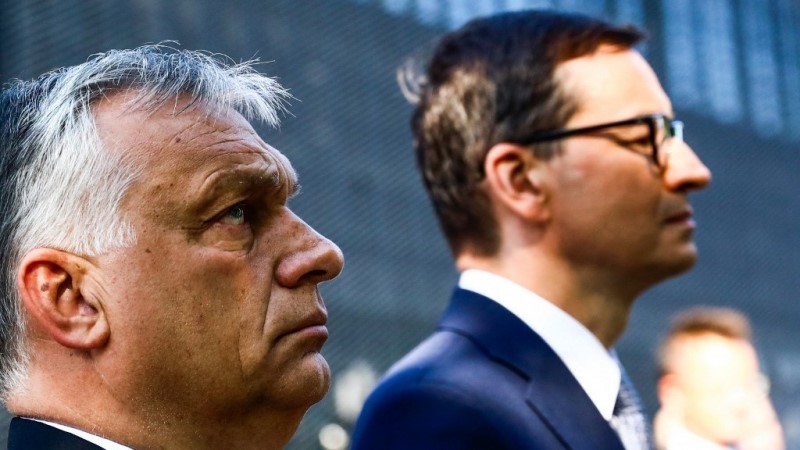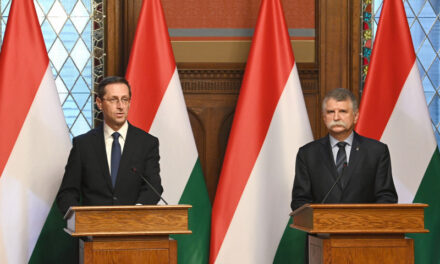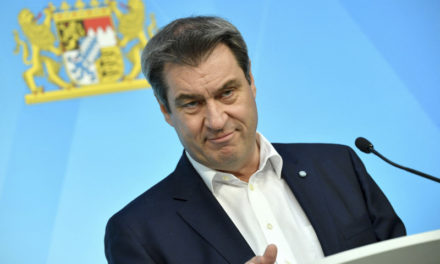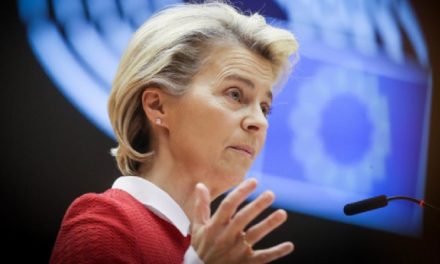In an interview, Mateusz Morawiecki harshly criticized Germany and also introduced the idea of a joint loan for Ukraine and the militarization of the EU budget. Chancellor Scholz will not be thrilled with either.
In his interview with Politico after the EU summit, the Polish Prime Minister threw out ideas with his usual vehemence, most of which can be considered communication balloons rather than ideas grounded in reality. Germany, on the other hand, thoroughly got its own.
Germany is very little
As a recurring episode of the Polish-German relationship, which has not exactly been showing its sunny side recently, the Prime Minister did not miss the opportunity to kick the Berlin leadership a little again. For the first time, Mateusz Morawiecki returned to the theory that Germany, which made the huge mistake of becoming dependent on Russia in the fossil energy market, is largely responsible for the European energy crisis that erupted last year.
"We begged them not to do it," he said, pointing out that because of Berlin's stubbornness, the situation in the field of EU energy security became extremely tense.Nor was he kinder about Berlin's role in the Ukraine war. In recent months, Poland has practically become the absolute protagonist of war rhetoric and arms shipments, while Germany, which announced its military resurrection a year ago, is stumbling in one place and has so far done nothing to become the leader of European unity and NATO's European wing.
According to Morawiecki, it paints a false picture when Berlin or Paris point to the arms shipments they have sent so far, because compared to their capabilities, it is just a drop in the ocean. "Germany has fallen behind in its support for Ukraine," he said, suggesting that Europe's biggest economy should be leading the war coalition in all respects, rather than pursuing a communications policy based on promises.
“They are the biggest and the richest. They should send much more ammunition, weapons and money to Ukraine. For my part, I continue to encourage them to be more generous”
- pointed out the Polish Prime Minister, but at the same time he also admitted that Berlin's break with its decades-long pacifist foreign policy and in the field of Leopard tanks definitely represents a positive step forward.
Where is our money?
In the meantime, Germany is the largest contributor to the fund named the European Peace Framework, which has now been continuously fattened up almost exclusively for the sake of arms shipments to Ukraine. (Let's add: it can't be otherwise, the size of the payments to the off-budget account is determined by the economy of each member state.) Since the outbreak of the war in Ukraine, the fund has played the role of a kind of compensation tool, that is, the countries that send weapons to Kiev from their own stocks, they receive compensation from the Peace Framework.
If they do get it. Poland continuously submits its invoices, but the country, which is still groaning under the weight of financial deductions and penalties from Brussels, does not really see the European Commission's well-oiled helpfulness in this area, and only received back a tiny fraction of its previous expenses as compensation.
In the interview, Morawiecki did not forget to note that he is not at all impressed by Germany's contribution to the fund and that he sees that Berlin is merely making the mandatory contributions instead of reaching deeper into its pockets and transferring sums worthy of its economy/wealth.By the way, at the EU summit, Poland joined Slovakia's proposal, based on which they would fatten the fund with an additional 3.5 billion euros in 2023, but in the end they were left alone with the proposal.
Brainstorm
Morawiecki did not hold back when asked about the raising of financial resources for the war. Above all, he pointed out: the goal formulated by NATO in 2014, according to which member countries spend 2 percent of their GDP on defense spending by 2024, is no longer enough .
"I will advocate that this expenditure be at least 3 percent"
- said the Polish prime minister, who announced at the beginning of the year that his country would expand the defense budget to 4 percent, thus becoming the absolute leader among NATO member countries in terms of its proportions. His idea is also interesting because only seven countries reached 2 percent by 2023, while the European states with the largest economies, such as Italy, France and Germany, did not reach the magic limit. In the case of the latter, a whole year has passed since Chancellor Scholz sometimes promised the 2 percent budget, and sometimes backtracked on it, thus making his already considered frivolous force development program truly frivolous.
Morawiecki's other idea would turn the EU budget upside down. As he said, after the budget review is approaching, the basic principle that military expenses cannot be part of the common money should be reconsidered. (The European Peace Framework was created precisely for this economic reason.) According to the prime minister, the review should also look for residual amounts of many billions of euros that will never be used anyway, because they could be used for the war in Ukraine.
He once again raised the possibility of a joint giga loan taken out for the sake of Ukraine, but at this point - no matter how many people line up behind the idea - Poland's ability to assert its interests will be little.Several member states - including Hungary - strongly reject this idea, and not because of Ukraine, but to avoid an increase in debt. By the way, Germany is the most militant opponent of borrowing - as an unavoidable factor. Scholz and his finance minister, Lindner, have stated most emphatically on several occasions: they do not want to hear again about borrowing like the one the European Commission forced on the member states during the coronavirus epidemic.
As a final idea, Morawiecki pointed to the possibility of confiscating Russian frozen assets, not paying much attention to the fact that those looking for legal options in this regard run into the thickest concrete walls again and again, and both the US Treasury Secretary and Switzerland, which is somewhat hesitant about the topic, dismissed the possibility .
Hungary is a friend, except when it comes to war
Of course, the Brussels paper did not fail to ask the Polish prime minister if he feels embarrassed about the historically and traditionally good relationship with Hungary. Perhaps Morawiecki didn't give the answer they wanted to hear, because the prime minister answered:
yes, he is concerned about Budapest's relationship with Russia, but the Hungarian government's position on Ukraine and Moscow is the only one in which there are marked differences of opinion between the two countries, they think alike in everything else.Featured image: MTI/EPA-PAP/Leszek Szymanski













